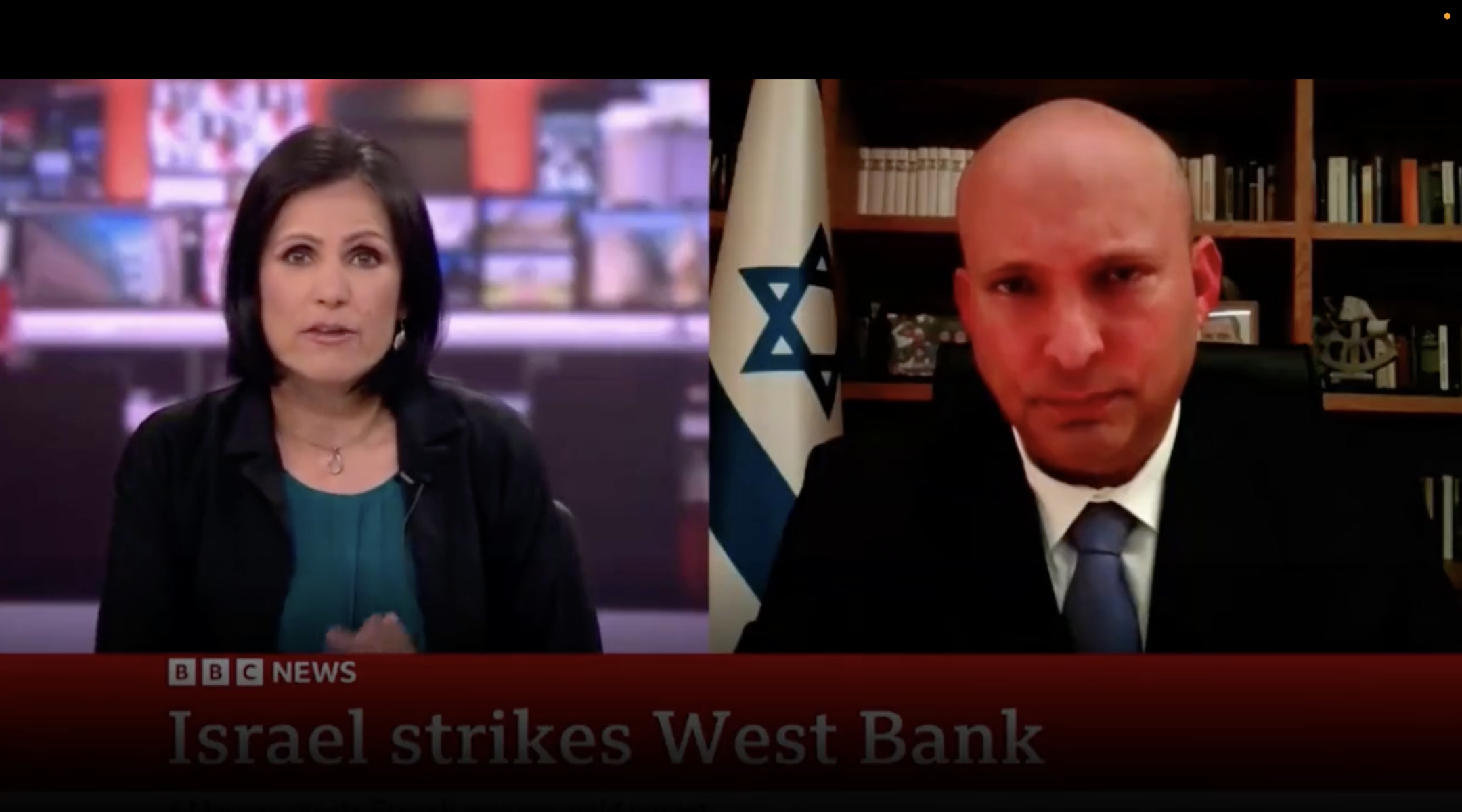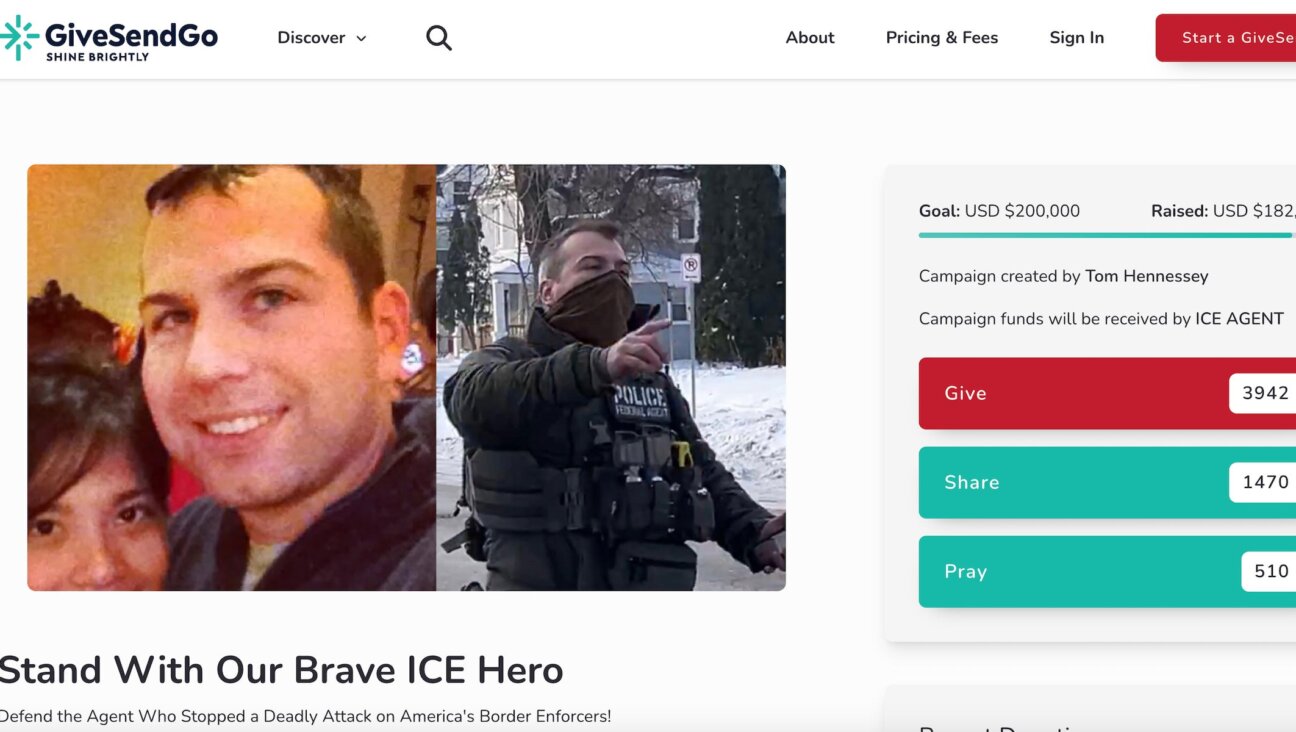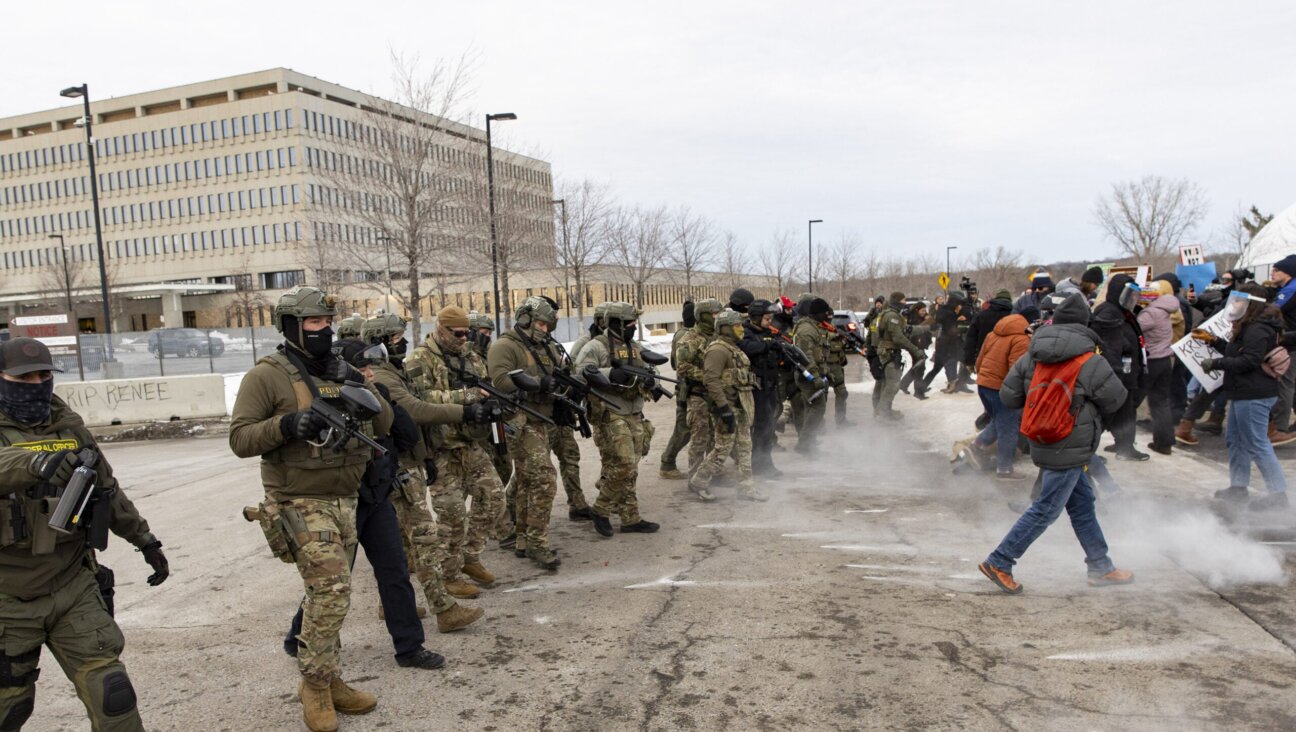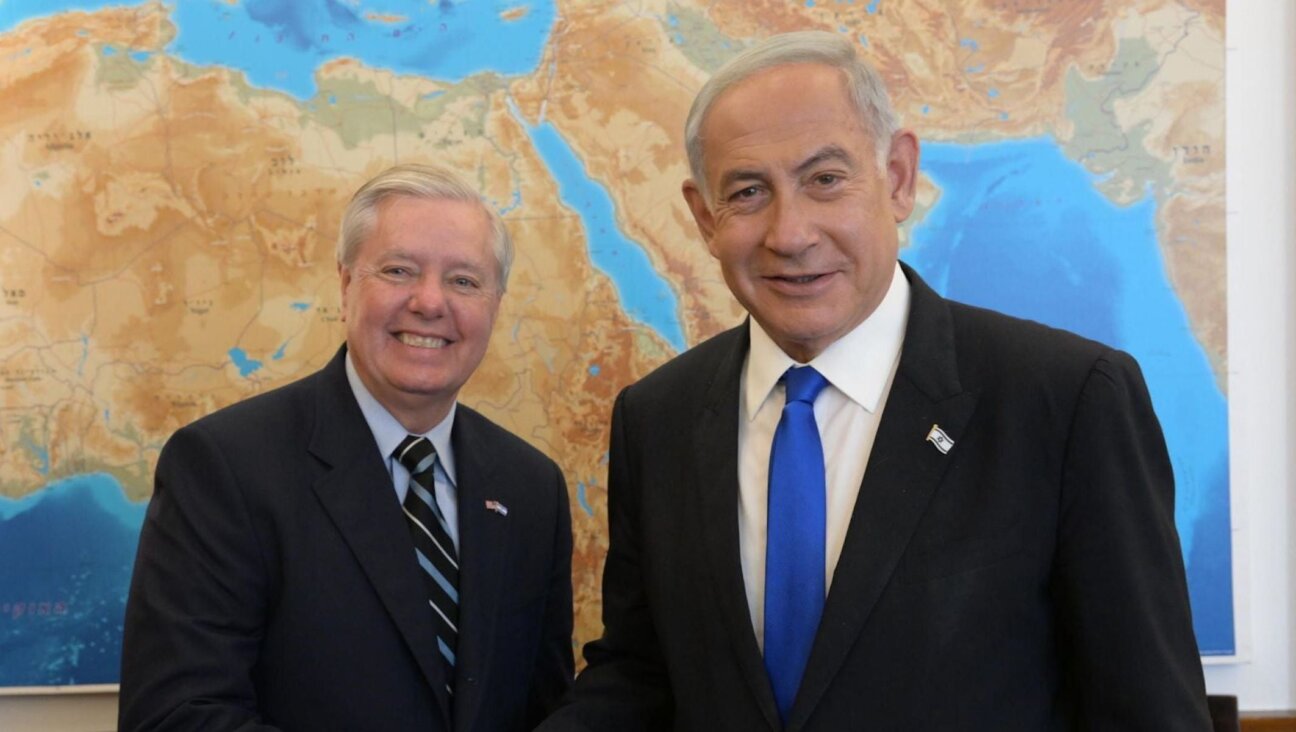BBC apologizes for anchor saying ‘Israeli forces are happy to kill children’
The journalist, Anjana Gadgil, was interviewing Bennett on Tuesday about the Israel Defense Forces’ incursion this week into the Palestinian West Bank city of Jenin

BBC anchor Anjana Gadgil interviews former Israeli Prime Minister Naftali Bennett on July 4, 2023. (Screenshot from Twitter)
(JTA) — The BBC has apologized for an on-air interview in which one of its anchors told former Israeli prime minister Naftali bennett that “Israeli forces are happy to kill children.”
The journalist, Anjana Gadgil, was interviewing Bennett on Tuesday about the Israel Defense Forces’ incursion this week into the Palestinian West Bank city of Jenin. Twelve Palestinians, including a number of children, and one Israeli were killed in the operation, which lasted two days.
Israel conducted the operation to root out terror cells in the city and maintains that all of the Palestinian dead, regardless of age, were militants. Near the beginning of the 8-minute interview, Bennett repeated that message, to which Gadgil responded, “Terrorists, but children. The Israeli forces are happy to kill children.”
Bennett responded, “It’s quite remarkable that you’d say that, because they’re killing us. Now, if there’s a 17-year-old Palestinian that’s shooting at your family, Anjana, what is he?”
Gadgil’s remarks drew condemnation from a number of groups and public figures. The Board of Deputies of British Jews, an umbrella community organization, said it was “appalled” by her statement and that it would reach out to the BBC due to what it called “a clear breach of the Corporation’s own guidelines.” The Anti-Defamation League called the remark “slanderous and hateful,” and said it “speaks to a sustained anti-Israel bias within mainstream media outlets.”
Bennett tweeted that the conversation was “one of the most hostile interviews toward Israel that I can remember.”
In response, a spokesperson for the BBC told the Jewish Chronicle, a British newspaper, that the network apologizes for Gadgil’s statement.
“While this was a legitimate subject to examine in the interview, we apologise that the language used in this line of questioning was not phrased well and was inappropriate,” the BBC spokesperson said, adding that the network has endeavored to cover Jenin in an “impartial and robust way.”
The British Board of Deputies said it welcomed the “speedy response” from the BBC.
“I am pleased that the BBC have apologised for the clearly unacceptable language which was used in their interview with Naftali Bennett,” Marie van der Zyl, the group’s president, said in a statement.
Gadgil’s remarks come as the Palestinian Authority has called the operation a “war crime” and the top United Nations human rights official said in a statement that the operation “raises a host of serious issues with respect to international human rights norms and standards.” The U.S. National Security Council, by contrast, said in a statement that it “support[s] Israel’s security and right to defend its people,” thought it added, “It is imperative to take all possible precautions to prevent the loss of civilian lives.”
The BBC’s apology comes about six weeks after CNN anchor Christiane Amanpour apologized for saying the killing of three British Israelis happened in a “shootout” rather than a shooting.
This article originally appeared on JTA.org.













